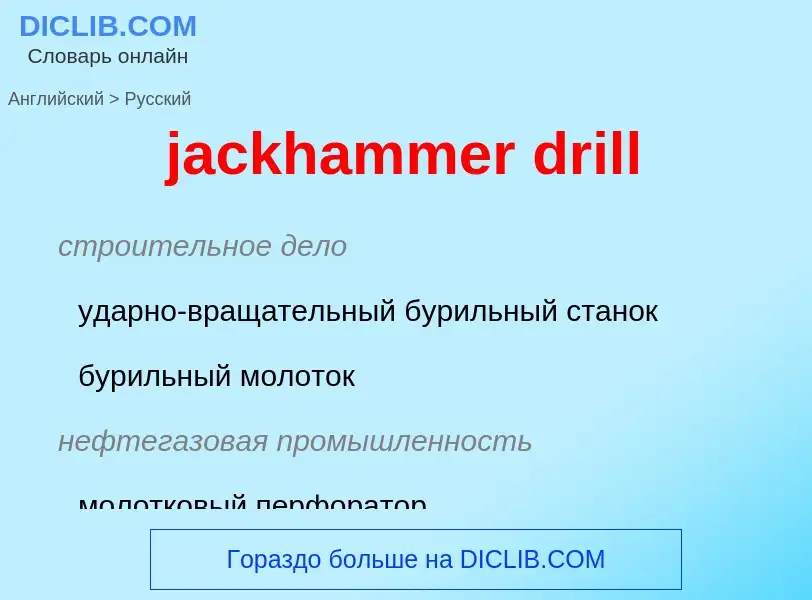Traducción y análisis de palabras por inteligencia artificial ChatGPT
En esta página puede obtener un análisis detallado de una palabra o frase, producido utilizando la mejor tecnología de inteligencia artificial hasta la fecha:
- cómo se usa la palabra
- frecuencia de uso
- se utiliza con más frecuencia en el habla oral o escrita
- opciones de traducción
- ejemplos de uso (varias frases con traducción)
- etimología
jackhammer drill - traducción al ruso
строительное дело
ударно-вращательный бурильный станок
бурильный молоток
нефтегазовая промышленность
молотковый перфоратор
пневматический молоток
ручной бурильный молоток
['dʒækhæmə]
общая лексика
ручной бурильный молоток
строительное дело
бурильный молоток
отбойный молоток
существительное
общая лексика
отбойный молоток
Definición
Wikipedia

A jackhammer (pneumatic drill or demolition hammer in British English) is a pneumatic or electro-mechanical tool that combines a hammer directly with a chisel. It was invented by William McReavy, who then sold the patent to Charles Brady King. Hand-held jackhammers are generally powered by compressed air, but some are also powered by electric motors. Larger jackhammers, such as rig-mounted hammers used on construction machinery, are usually hydraulically powered. These tools are typically used to break up rock, pavement, and concrete.
A jackhammer operates by driving an internal hammer up and down. The hammer is first driven down to strike the chisel and then back up to return the hammer to the original position to repeat the cycle. The effectiveness of the jackhammer is dependent on how much force is applied to the tool. It is generally used like a hammer to break the hard surface or rock in construction works and it is not considered under earth moving equipment, along with its accessories (i.e., pusher leg, lubricator).
In British English, electromechanical versions are colloquially known as "Kangos".




